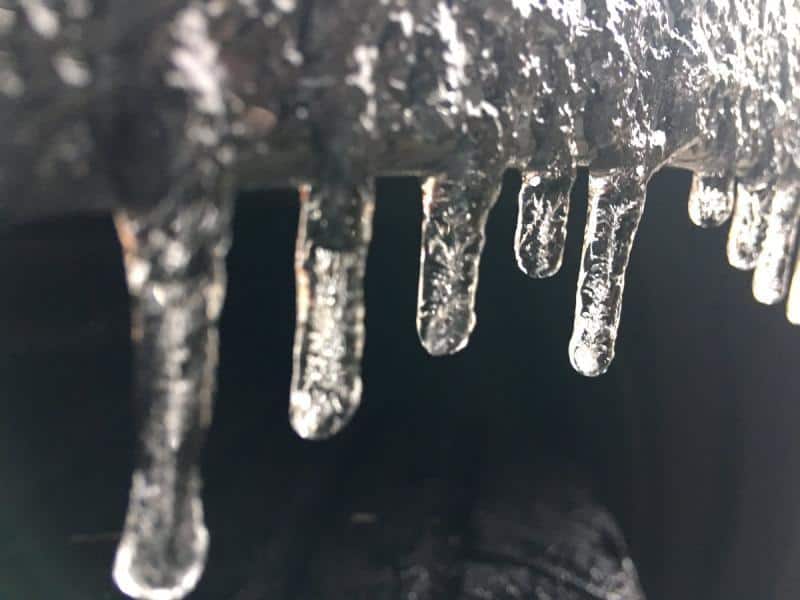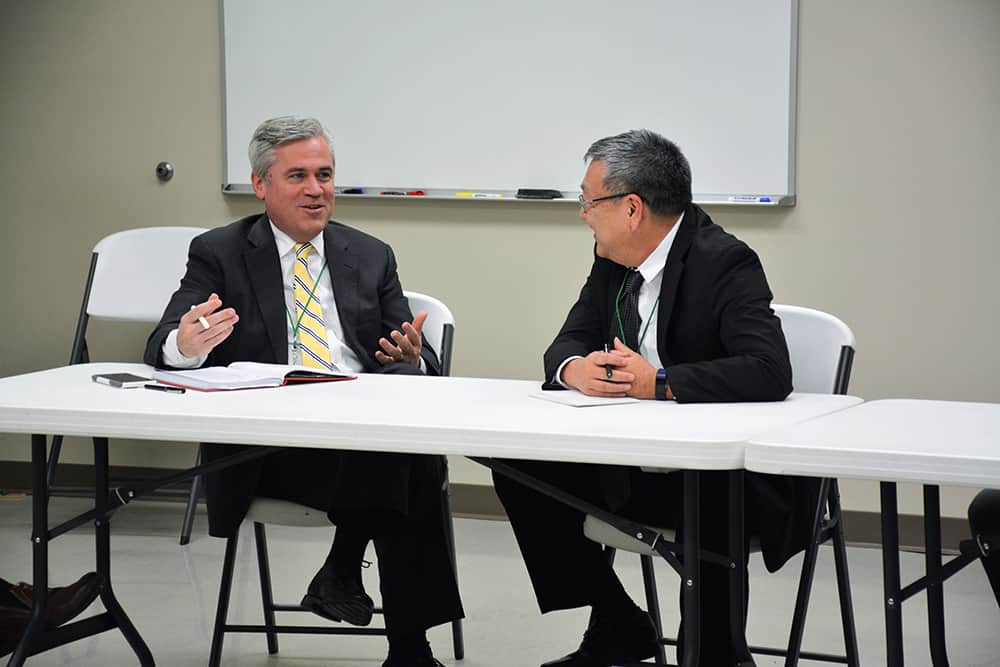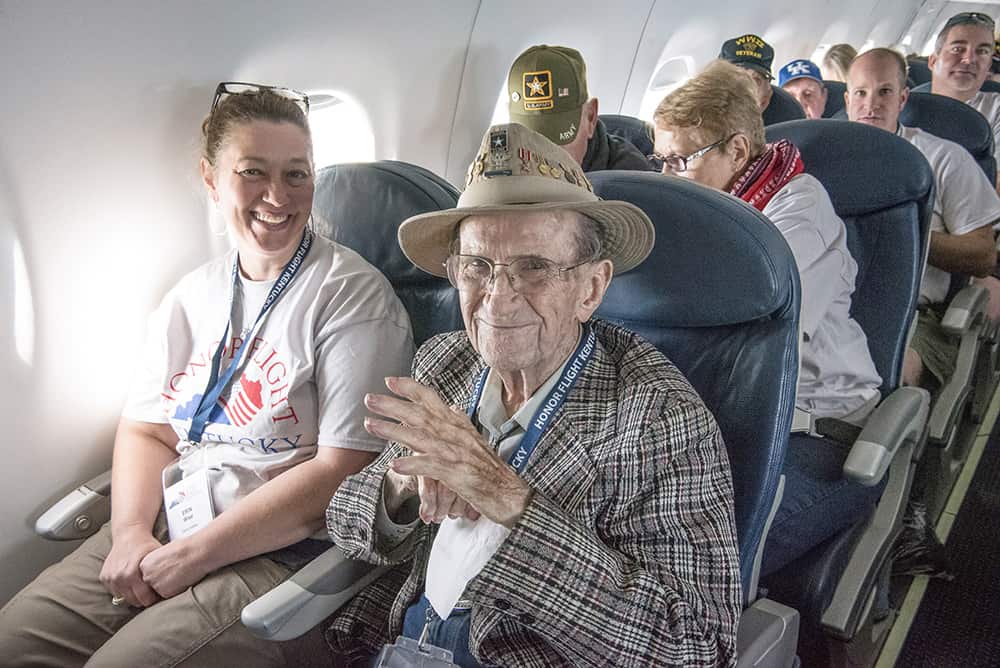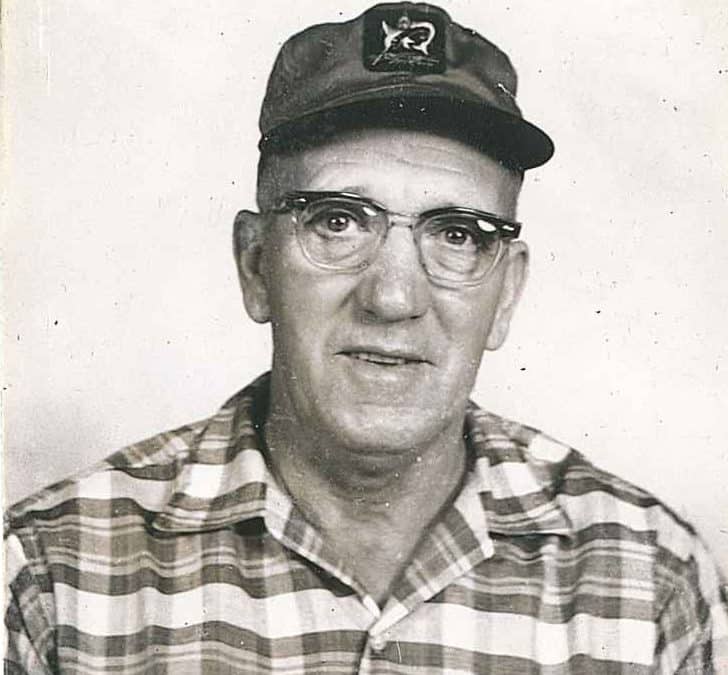Kentucky weather can be unpredictable, especially during the winter months. That’s why you should prepare for dangerous situations before a storm hits.
It is especially important to develop a plan for prolonged power outages during these harsh months. Heavy snows, freezing rain and ice storms can all create electrical hazards.
Due to these dangerous conditions, many residents may be confined to their homes for days at a time. That’s why it is important to have a plan in place, especially during these prolonged outages. To better prepare you and your family for a power outage, your electric co-op recommends members keep a storm preparedness kit fully stocked. The basic supplies in this kit should include:
- Bottled water
- Non-perishable food
- Emergency blankets
- First aid kit/medicine
- Flashlight
- Battery operated or hand-crank radio
- Extra batteries
- Toiletries
Now that your family is prepared for a prolonged outage, what should you do if the lights do go out?
While indoors, many will turn their focus to staying warm.
If homes are not using a generator, keep warm air in and cool air out by not opening doors to unused rooms. Do not open doors to the outdoors unless necessary.
Food safety is also important when there is a prolonged outage. Keep refrigerator and freezer doors closed as much as possible, and eat perishable food first. If you know a winter storm is coming, stock up on ice so that you can keep things in coolers to keep them from going bad if an outage lasts longer than a day. Once the refrigerator reaches temperatures higher than 40 degrees Fahrenheit, foods can become unsafe to eat.
To protect homes’ electrical equipment during an outage, turn off and unplug all unnecessary electronics or appliances. This will keep equipment from being damaged by surges or spikes when the power returns.
Once an outage is over, there are still safety precautions to take. Electrical power lines could still be down. If you see downed power lines, do not touch them. Call your local co-op or 911.
Make sure your homes and families are prepared for winter storms this season, and avoid electrical hazards that may be common this time of year.
Sources: Electrical Safety Authority, Popular Mechanics
When in doubt, throw it out: food safety reminders during an outage
During an outage:
- First, use perishable food from the refrigerator. Perishables should have a temperature of 40 degrees Fahrenheit (4 degrees Celsius) or below to be safe to eat. Use food from the freezer after consuming refrigerated food.
- An unopened refrigerator will keep food cold for about four hours.
- A full freezer will keep the temperature for about 48 hours (24 hours if it is half-full) if the door remains closed.
- If it looks like the power outage will continue beyond a day, prepare a cooler with ice for your freezer items.
- Keep food in a dry, cool spot and cover it at all times.
After an outage:
- Throw away any food (particularly meat, poultry, fish, eggs and leftovers) that has been exposed to temperatures higher than 40 degrees Fahrenheit for two hours or more, or that has an unusual odor, color or texture.
- Never taste food or rely on appearance or odor to determine its safety. If it has been at room temperature too long, bacteria causing food-borne illnesses can quickly grow.
- If you are not sure food is cold enough, take its temperature with a food thermometer. If it is colder than 40 degrees Fahrenheit, you can refreeze it.
Sources: American Red Cross
Generator safety: Prevent carbon monoxide poisoning
- Never use a generator, grill, camp stove or other gasoline, propane, natural gas or charcoal-burning devices inside a home, garage, basement, crawlspace or any partially enclosed area.
- Keep these devices outdoors, away from doors, windows and vents that could allow carbon monoxide to come indoors.
- Opening doors and windows or using fans will not prevent CO buildup in the home. Although CO can’t be seen or smelled, it can rapidly lead to full incapacitation and death.
- Install CO alarms in central locations on every level of your home and outside sleeping areas to provide early warning of accumulating carbon monoxide.
Sources: American Red Cross












